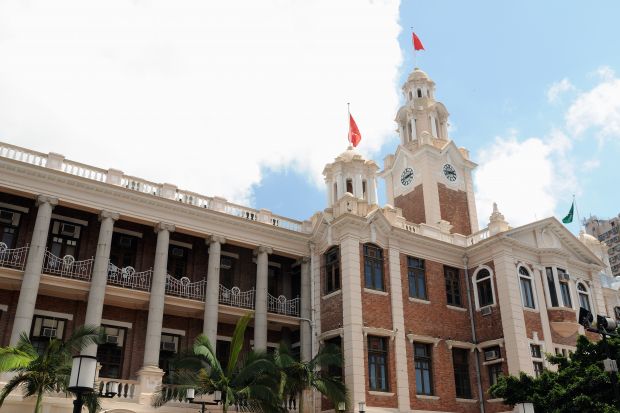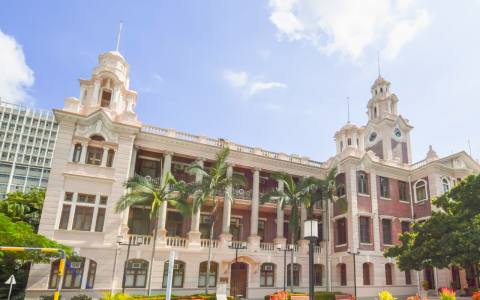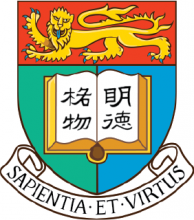View the full list of the most international universities in the world 2019
The University of Hong Kong (HKU) has always been international. Established in 1911, it is the territory’s first and oldest university and was given the founding mandate of serving the needs of both Hong Kong and China. From the beginning, its outlook was therefore expansive. The teaching staff were international, and the inaugural student body drew from much of the region.
Today, HKU is the only comprehensive, research-intensive university in China with English as its official language. It retains a global outlook strategically refined for 21st-century higher education. As universities around the world seek to build closer links with China, HKU is thus well placed to act as a gateway for higher education between China and the rest of the world. Indeed, for any student or scholar seeking to study China in China in English, HKU is the obvious choice. Teaching Asian languages is also a specialism.
As a city, Hong Kong is distinct from mainland China in its social, political and educational practices. Its open borders, access to information, language policies, independent media, communications, IT and transport infrastructures generate an essential platform for HKU’s international engagement.
For HKU, internationalisation is not an end in itself but a means to augment core missions in teaching and learning, research and knowledge exchange. Our strategic vision – articulated through “3+1 Is” of internationalisation, innovation and interdisciplinarity all converging on impact – is to be acknowledged throughout the world as Asia’s Global University.
Global reputation of UK universities declines ahead of Brexit
In teaching and learning, HKU aims to ensure that the student experience is among the most international available anywhere in the world. We want our students to be globally-minded independent thinkers, so our curriculum is designed to encourage critical thinking, initiative and innovation.
We want our campus to be a dynamic and diverse environment where students can meet peers of different nationalities, from different cultures and backgrounds. We therefore recruit top students from around the world, with some 10,000 international students studying at HKU out of a student body of around 30,000.
We have 360 exchange partners in 44 countries, and many dual degree programmes with top global universities. We are moving towards providing all undergraduate students with one quality learning opportunity in mainland China and one overseas. We are committed to extending opportunities for cross-cultural encounters, deepening the cosmopolitan components of campus life and increasing opportunities for students to gain multicultural learning experiences.
We also have an ambitious agenda to drive innovation and push the frontiers of research, with global collaborations a key strategic component. We have research partnerships with many leading institutions in mainland China and the wider world, and will continue to build more.
Our engagement with mainland China includes the establishment of five Partner State Key Laboratories, as well as HKU Shenzhen Hospital, HKU-Shenzhen Institute of Research and Innovation and HKU-Zhejiang Institute of Research and Innovation. Since exceptional academic scholarship is key to everything we do, we seek aggressively to recruit and retain the best talent from all over the world.
We accept the challenges implicit in our internationalisation drive, and work hard to confront them. For a classroom to be international, it needs not only to recruit students from around the world, but also to ensure they bring their diverse cultural perspectives to bear on the disciplines they study. We therefore take every opportunity to mix students through group work in class, integrated student residences, and a large set of co-curricular activities.
In developing a wide range of experiential learning programmes, we seek to push students beyond their comfort zone to stimulate deeper learning. For more than a decade now, HKU students have taught English in marginalised and impoverished communities in East and Southeast Asia, and we continue to expand our network.
We also recognise the administrative challenges and financial demands generated by offshore programmes, and seek through careful use of both public funds and support from committed donors to establish a level playing field for all students. At the same time, we mobilise alumni from our more path-breaking initiatives to spread the word among junior students and encourage them to help us build momentum for our agenda.
In the most successful cases, student groups have opened up learning opportunities beyond our own programmes. The Connecting Myanmar intiative, launched by students a decade ago and run by students and alumni from every cohort since then, continues to bring together young people from Hong Kong and Myanmar for a diverse array of mostly summer programmes.
Finally, we greatly value our international partnerships, and work especially closely with leading institutions in Universitas 21, the Association of Commonwealth Universities and the Association of Pacific Rim Universities. We understand that through learning from our global partners we have the best chance of delivering on our internationalisation agenda.
Ian Holliday is vice-president and pro vice-chancellor (teaching and learning) at the University of Hong Kong.
Register to continue
Why register?
- Registration is free and only takes a moment
- Once registered, you can read 3 articles a month
- Sign up for our newsletter
Subscribe
Or subscribe for unlimited access to:
- Unlimited access to news, views, insights & reviews
- Digital editions
- Digital access to THE’s university and college rankings analysis
Already registered or a current subscriber?









